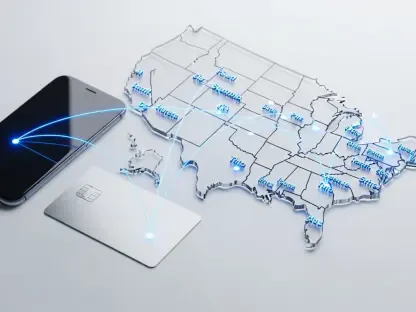The Current Landscape of Buy Now, Pay Later (BNPL) Services
In an era where consumer financing is rapidly evolving, the Buy Now, Pay Later (BNPL) industry stands as a cornerstone of modern retail, with adoption rates soaring across demographics and becoming a lifeline for shoppers seeking flexibility amid economic fluctuations. This payment solution enables them to split purchases into manageable installments without the immediate burden of full payment. The BNPL market has seen exponential growth, driven by a shift toward digital transactions and a growing preference for alternatives to traditional credit cards, particularly among younger consumers who prioritize financial control.
Key players like PayPal, Klarna, and Affirm dominate the sector, each carving out significant market share through innovative offerings and strategic partnerships with retailers. PayPal, in particular, has emerged as a formidable force, leveraging its vast user base and trusted payment ecosystem to expand BNPL accessibility. Meanwhile, competitors continue to push boundaries with tailored promotions and seamless integrations, intensifying competition and fueling consumer interest in flexible payment options across various platforms.
Technology plays a pivotal role in this landscape, with digital wallets and mobile apps simplifying the BNPL experience for users worldwide. These tools have made it easier for consumers to access installment plans at checkout, whether shopping online or in physical stores. The integration of BNPL into both digital and brick-and-mortar retail environments underscores its versatility, setting the stage for groundbreaking advancements by companies like PayPal, which are redefining how consumers approach spending and budgeting in everyday transactions.
PayPal’s Strategic Innovations in BNPL
Key Trends and Initiatives Driving PayPal’s Approach
PayPal has taken bold steps to strengthen its position in the BNPL space, notably through a 5% cash back promotion on BNPL purchases running through the end of this year. This incentive aims to attract holiday shoppers, encouraging them to try the service during a peak spending season while offering tangible rewards for choosing installment payments. The promotion applies across online and in-store transactions, reflecting PayPal’s commitment to broadening the appeal of its financing options.
Beyond incentives, PayPal is pioneering the expansion of installment lending into physical retail spaces, introducing loans of up to $10,000 with terms extending over longer periods. This rollout, which began in markets like Germany earlier this year, integrates seamlessly with a virtual Mastercard for one-time use within 24 hours at merchants accepting major digital payment methods. Such innovations bridge the gap between digital convenience and in-person shopping, targeting routine purchases at locations like grocery stores and gas stations.
A critical focus for PayPal lies in appealing to younger, cash-flow-conscious consumers who view BNPL as a budgeting tool rather than a debt trap. By emphasizing fixed repayment schedules and predictability, the company positions its service as a practical solution for managing expenses. This approach, combined with an omnichannel strategy that unifies online and in-store experiences, ensures PayPal remains relevant to a demographic that values flexibility and transparency in financial tools.
Market Impact and Growth Potential
Recent data highlights the rising adoption of BNPL, with reports like Experian’s study on holiday shopping behaviors indicating that a significant portion of consumers rely on these services to navigate economic pressures. PayPal’s targeted strategies, such as reducing cart abandonment for merchants, have proven effective in driving higher conversion rates. This not only benefits retailers but also boosts average order values, as shoppers feel more confident making larger purchases with structured payment plans.
Analysts project substantial growth in PayPal’s market share within the BNPL sector, fueled by consumer response to current initiatives and the company’s ability to adapt to spending trends. The integration of cash back rewards and technological advancements like digital wallet compatibility provides a competitive edge over rivals. As more users embrace BNPL for both small and significant purchases, PayPal’s focus on merchant partnerships further solidifies its standing in a crowded market.
Looking ahead, the potential for expansion remains vast, especially as PayPal continues to refine its offerings to meet evolving demands. With a growing number of retailers adopting BNPL solutions to attract customers, the company’s emphasis on seamless integration and user incentives positions it to capture an even larger segment of the market. This trajectory suggests a robust outlook for sustained growth and influence in consumer financing.
Challenges Facing PayPal and the BNPL Industry
Despite its momentum, PayPal faces notable obstacles in scaling its BNPL services, particularly with interest rates on longer-term loans reaching as high as 35.99%. Such rates have sparked consumer pushback, as cost-sensitive individuals question the affordability of these plans despite their structured nature. Addressing this concern will be crucial to maintaining trust and encouraging widespread adoption among diverse user groups.
Technological hurdles also loom large, especially in ensuring BNPL integration works smoothly across varied in-store payment systems. Many physical retail environments still lack the infrastructure to support seamless digital transactions, creating friction for users accustomed to online ease. PayPal must invest in partnerships and system upgrades to overcome these barriers and deliver a consistent experience regardless of shopping channel.
Economic uncertainty adds another layer of complexity, with declining consumer confidence and inflationary pressures dampening spending appetites. These market-driven challenges could limit the effectiveness of BNPL as a sales driver, particularly if shoppers cut back on discretionary purchases. To counter this, PayPal could enhance transparency around repayment terms and launch educational campaigns to highlight the benefits of BNPL, ensuring consumers feel informed and empowered when opting for installment plans.
Regulatory and Compliance Considerations in BNPL
The regulatory landscape for BNPL services continues to evolve, with consumer protection laws and lending standards becoming more stringent to safeguard users from potential over-indebtedness. Governments and financial authorities are increasingly scrutinizing installment plans to ensure fair practices, placing pressure on providers like PayPal to align with these guidelines. Compliance remains a critical focus as the industry navigates heightened oversight in multiple regions.
PayPal’s approach to regulatory adherence is evident in its handling of in-store loans and virtual card usage, particularly in markets like Germany where strict standards apply. The company works to balance innovation with accountability, ensuring that its BNPL offerings meet local requirements while maintaining user accessibility. Security concerns in digital payment integrations also demand attention, as protecting consumer data is paramount to sustaining trust in an era of rising cyber threats.
As regulations shift, they could significantly influence the structure of PayPal’s BNPL products and broader industry practices. Potential changes might include mandatory disclosures on loan terms or caps on interest rates, which could reshape how providers market their services. Staying ahead of these developments will be essential for PayPal to maintain its leadership while adapting to a dynamic compliance environment.
The Future of BNPL with PayPal’s Leadership
Looking toward the horizon, PayPal’s BNPL trajectory appears poised for innovation, with emerging technologies like advanced digital wallets and AI-driven personalization set to enhance user experiences. These tools could enable more tailored financing options, predicting consumer needs and offering customized repayment plans. Such advancements would further differentiate PayPal in a competitive field, ensuring it remains at the forefront of payment solutions.
Market disruptors, including new entrants and changing consumer preferences, pose potential challenges, yet PayPal’s adaptability offers a strong buffer. The company’s ability to pivot in response to trends, such as a growing demand for sustainable financing, will be key to sustaining relevance. Additionally, deeper penetration into physical retail through expanded merchant partnerships could unlock significant growth opportunities in untapped sectors.
Global economic conditions and seasonal spending patterns, particularly during holiday periods, will continue to shape PayPal’s long-term BNPL strategy. As consumers navigate financial constraints, the demand for flexible payment options is likely to persist, providing fertile ground for expansion. PayPal’s focus on aligning with retailer needs and leveraging data insights positions it to capitalize on these dynamics, driving the future of consumer financing with confidence.
Conclusion: PayPal’s Role in Redefining Consumer Financing
Reflecting on PayPal’s journey, its transformative impact on the BNPL space through strategic promotions, in-store lending expansions, and consumer-centric tools stands out as a game-changer. The company’s efforts to address merchant pain points while catering to evolving shopper needs mark a significant milestone in reshaping how financing is perceived and utilized across retail channels.
For stakeholders, including merchants and investors, the path forward involves leveraging PayPal’s innovations to drive sales and capitalize on growing BNPL adoption. Retailers could integrate these solutions to enhance customer loyalty, while investors might consider the long-term value of supporting a leader adept at navigating economic headwinds. Collaborating with PayPal to refine user education and transparency emerges as a vital step to sustain momentum.
Ultimately, the potential for PayPal to influence consumer financing trends beyond the current landscape is evident, provided it continues to prioritize adaptability and user trust. Exploring partnerships in emerging markets and investing in next-generation payment technologies offers a promising avenue to solidify its legacy as a pioneer in the BNPL arena.









